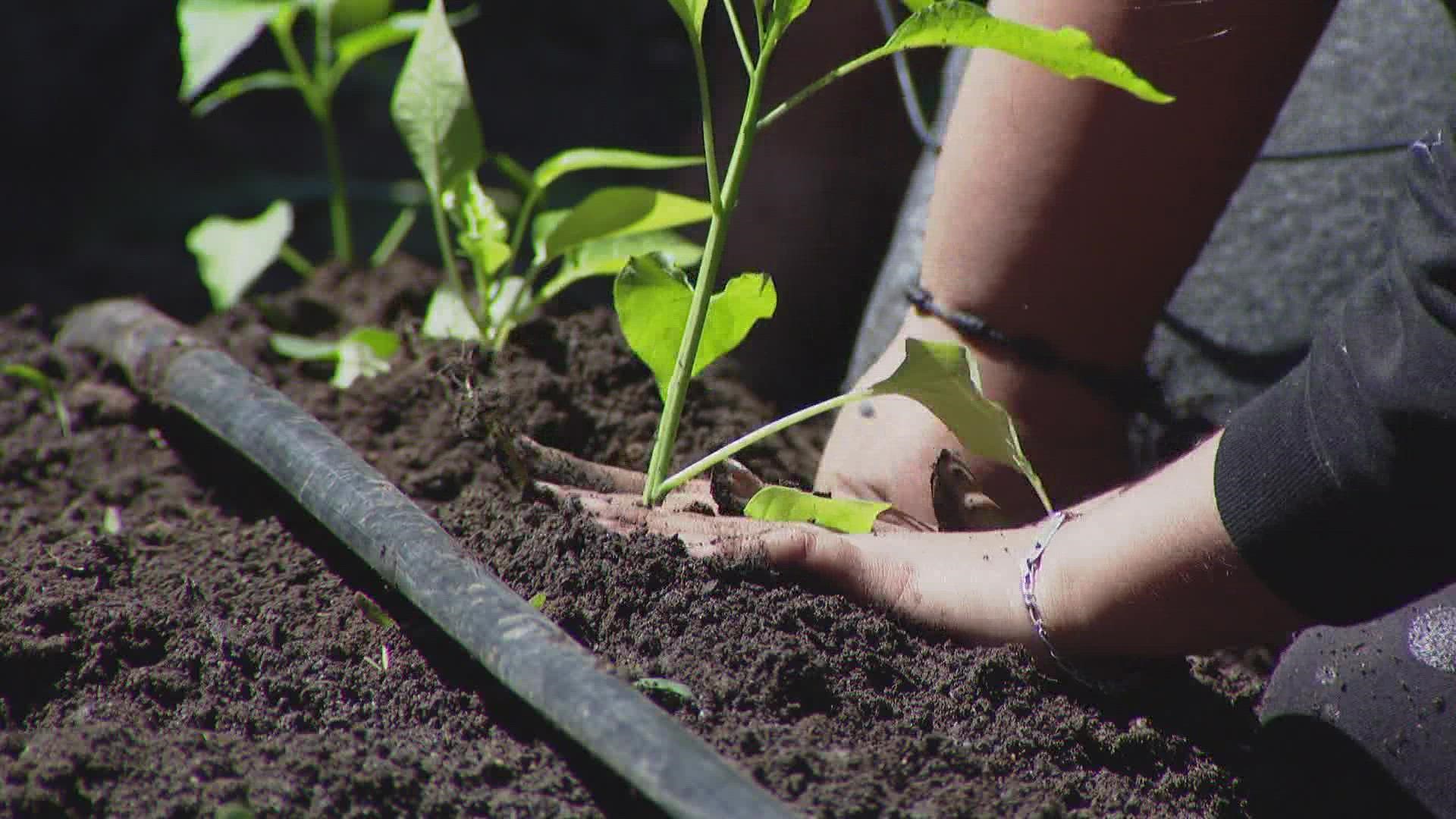DENVER — In Denver's Westwood neighborhood, one nonprofit is fighting food insecurity by bringing access to fresh foods directly to families – planted right in their backyards.
In an area where there are not enough grocery stores to meet demand, this neighborhood relies on the community to fill the food gap, along with help from the nonprofit Re:Vision.
The organization turned the challenge of food supply into an opportunity to work directly with Latino families by sharing their "promotoras," or community workers like Leticia Zuniga, who work with neighborhoods to cultivate urban gardens.
Zuniga recently partnered with Eva Bautista to establish her own backyard into a working garden. Along with some help from her granddaughter, Bautista is discovering the fruits of her labor with a little help from Zuniga.
"There are many benefits, many benefits thanks to sister Lety, to the 'promatoras' who come here, they fixed the land," said. Bautista. "We have obtained many benefits from it. We like it."
"I think the main reason why families have – first of all, to save – save the money. If you have vegetables in your house, the money that you were going to spend in the store, you can spend on something else. Then, it's one of the healthiest things. It's organic."
Together, "promotoras" visit 180 backyard gardens every two weeks.
Angeles Trinidad is one of the newer participants, in her second year of the urban gardening program.
Each family chooses what to plant – what they would eat the most – choosing from zucchini, cucumber, onion, lettuce, beets or cilantro. "Because it's interesting to taste or eat fresh, it's healthier. And it's good to learn," said Trinidad.
For Trinidad, this program is a connection to his heritage. "This comes from many years ago with our families," said Trinidad. "My grandfather is from Puebla. In fact, he had planted. He had like beans, lettuce – I think it's interesting to learn."
This gives families a chance to pass down the beauty of harvesting.
"I feel happy, very happy and very at ease," said Bautista as she worked with her granddaughter in her garden. "Because it's part of – when I am not here, it's something the girls have been able to see what we sow."
Promotora Zuniga said the work is very gratifying. "Well, it's something I did in Mexico, but with my parents. So it's a bit of a connection with what I did in Mexico," she said. "Obviously my culture, my way of working, my family. It's a way of not missing what I left so much."
Connecting the community to fresh food and to each other, the program is a way for families to save on grocery items and preserve their culture as well.
Re:Vision has other community food programs in place – together they provide 80,000 pounds of food directly to the community.
The nonprofit's urban farm off of Morrison Road grows fresh vegetables and fruit – which provide no-cost or affordable options directly to the Westwood community.
SUGGESTED VIDEOS: Latest from 9NEWS

